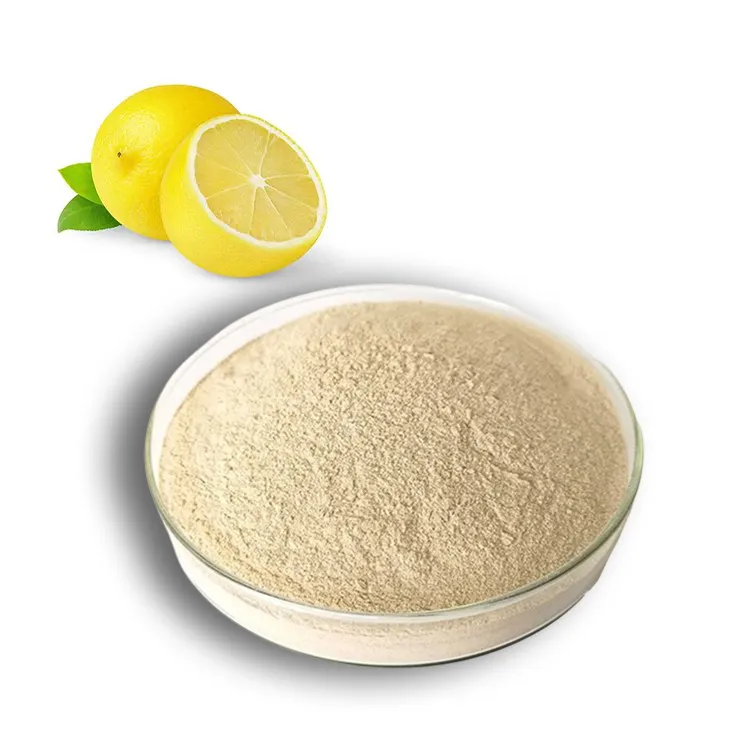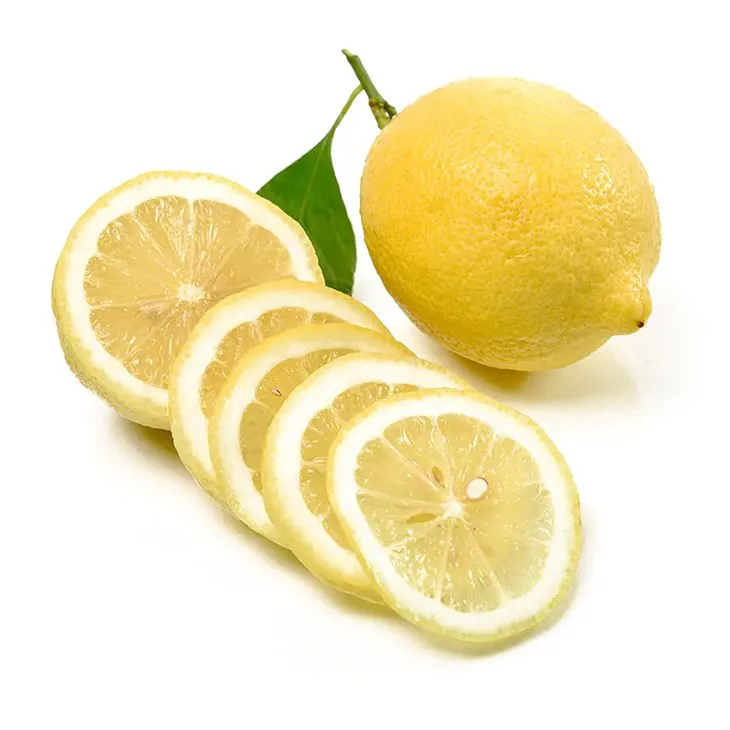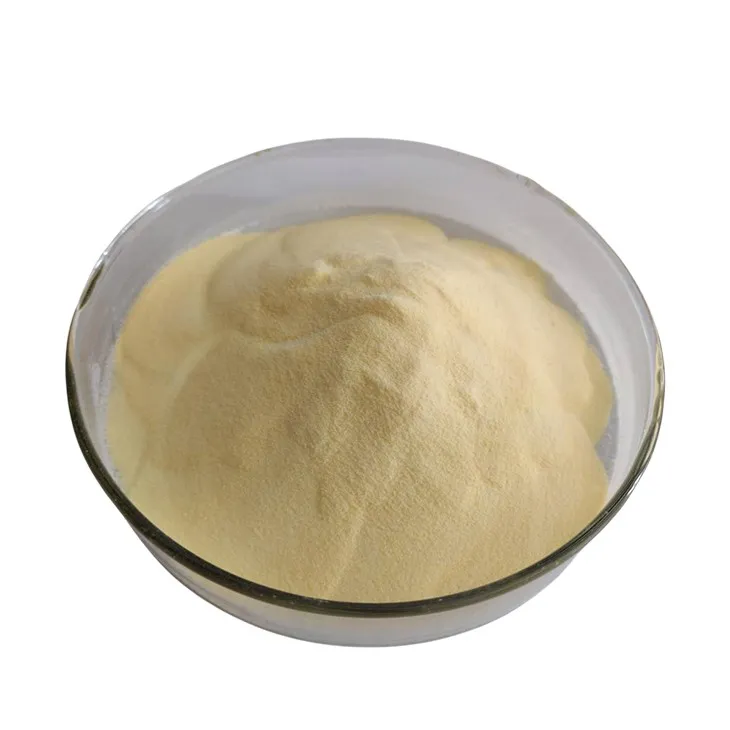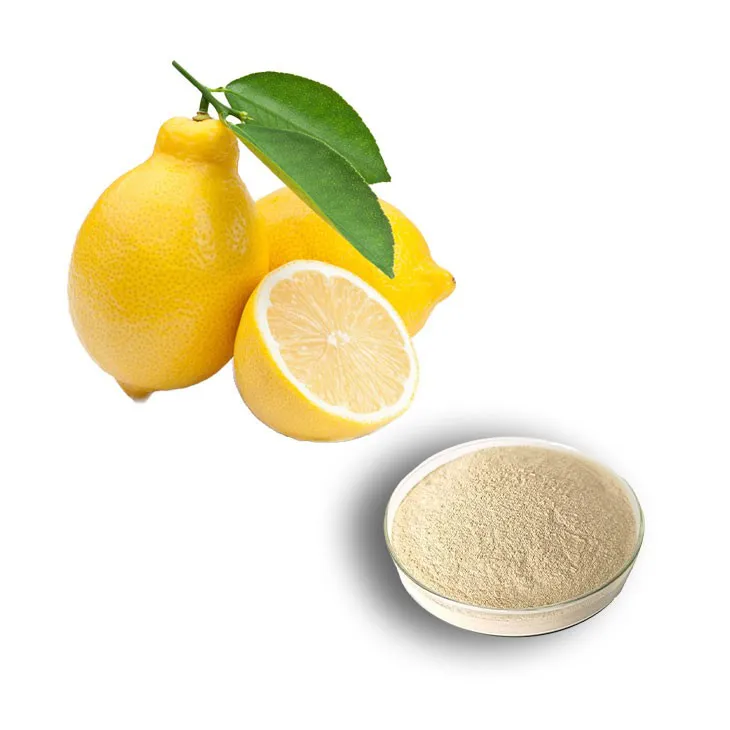- 0086-571-85302990
- sales@greenskybio.com
Best Answers to 7 Key Questions about Lemon Extract.
2024-12-10

1. What are the Chemical Constituents of Lemon Extract?
Lemon Extract is rich in various chemical constituents. One of the most prominent components is citric acid. Citric acid gives lemon its characteristic sour taste and also plays a role in many biochemical processes. It is widely used in the food and beverage industry as an acidulant, providing both flavor and preservation benefits.
Another important constituent is limonene. Limonene is a terpene that is responsible for the citrusy aroma of Lemon Extract. It has potential health benefits, such as antioxidant and anti - inflammatory properties. In addition, lemon extract contains various vitamins, with vitamin C being a notable one. Vitamin C is an antioxidant that helps boost the immune system, promotes collagen synthesis, and has anti - aging effects.
There are also flavonoids present in lemon extract, such as Hesperidin and eriocitrin. These flavonoids contribute to the antioxidant activity of lemon extract and may have potential health - promoting effects on the cardiovascular system, for example, by reducing inflammation and improving blood vessel function.

2. How is Lemon Extract Made?
Lemon extract is typically made through a process of extraction. First, fresh lemons are selected. The lemons should be ripe and of good quality to ensure a high - quality extract.
The extraction process usually involves two main methods: solvent extraction and steam distillation.
Solvent Extraction
In solvent extraction, a suitable solvent, such as ethanol or ethyl acetate, is used. The lemon peel or whole lemon is crushed and soaked in the solvent. The solvent helps to dissolve the flavor - and aroma - containing compounds from the lemon. After a period of soaking, the mixture is filtered to separate the liquid extract from the solid residues. The solvent is then removed, usually through evaporation, leaving behind the concentrated lemon extract.
Steam Distillation
Steam distillation is another method. In this process, steam is passed through the crushed lemons. The steam causes the volatile compounds in the lemon, such as limonene and other essential oils, to vaporize. These vapors are then condensed back into a liquid, which contains the lemon extract along with some water. The water can be further removed if a more concentrated extract is desired.

3. What are the Culinary Uses of Lemon Extract?
Lemon extract has a wide range of culinary uses.
- Baking: In baking, lemon extract is a popular ingredient. It can be added to cakes, cookies, muffins, and other baked goods to impart a fresh lemon flavor. For example, in a lemon cake recipe, a few drops of lemon extract can enhance the overall taste, giving it a tangy and refreshing note.
- Desserts: Lemon extract is also commonly used in desserts like puddings, custards, and ice creams. It adds a bright, citrusy flavor that cuts through the richness of these sweet treats. For instance, in a lemon - flavored ice cream, the extract provides the distinct lemon taste that many people love.
- Sauces and Dressings: In the preparation of sauces and dressings, lemon extract can be a great substitute for fresh lemon juice, especially when a more concentrated flavor is desired. It can be used in salad dressings, such as a vinaigrette, to add a zesty flavor. In cooking sauces like hollandaise or béarnaise, a touch of lemon extract can enhance the flavor profile.
- Marinades: Lemon extract can be used in marinades for meats, poultry, and fish. The acidic nature of the lemon extract helps to tenderize the meat and imparts a delicious lemon flavor. For example, in a marinade for chicken, lemon extract combined with herbs and spices can create a flavorful and tenderizing mixture.

4. What are the Potential Health Benefits of Lemon Extract?
Lemon extract offers several potential health benefits.
- Digestive Health: The citric acid in lemon extract can stimulate the production of digestive juices, which can aid in digestion. It may also help relieve symptoms of indigestion, such as bloating and discomfort.
- Immune System Support: As mentioned earlier, lemon extract contains vitamin C, which is crucial for a healthy immune system. Vitamin C helps the body fight off infections and diseases by enhancing the function of white blood cells.
- Skin Health: The antioxidants in lemon extract, including vitamin C and flavonoids, can help protect the skin from damage caused by free radicals. This may lead to a reduction in signs of aging, such as wrinkles and fine lines. Additionally, lemon extract may have antibacterial properties that can be beneficial for treating skin infections.
- Cardiovascular Health: The flavonoids in lemon extract may help improve cardiovascular health. They can reduce inflammation in the blood vessels, lower cholesterol levels, and improve blood circulation. This may in turn reduce the risk of heart disease and stroke.

5. Are There any Precautions or Side Effects Associated with Lemon Extract?
While lemon extract has many potential benefits, there are also some precautions to be aware of.
- Allergic Reactions: Some people may be allergic to lemon extract. Allergic reactions can range from mild symptoms such as skin rashes and itching to more severe symptoms like difficulty breathing and anaphylactic shock. If you have a known allergy to citrus fruits, it is best to avoid lemon extract.
- Dental Health: The high acidity of lemon extract can be harmful to dental enamel. If consumed frequently or in large amounts without proper dental care, it can lead to enamel erosion. To minimize this risk, it is advisable to rinse your mouth with water after consuming lemon - flavored products or to use a straw when drinking lemon - flavored beverages.
- Interaction with Medications: Lemon extract may interact with certain medications. For example, it may interfere with the absorption or effectiveness of some antibiotics or blood - thinning medications. If you are taking any medications, it is important to consult your doctor before using lemon extract regularly.
6. How to Store Lemon Extract?
Proper storage of lemon extract is important to maintain its quality and freshness.
- Container: Store lemon extract in a tightly sealed, dark - colored glass bottle. The dark - colored glass helps protect the extract from light, which can cause degradation of the compounds in the extract.
- Temperature: Keep the lemon extract in a cool, dry place. A pantry or cupboard away from direct sunlight and heat sources is ideal. Avoid storing it in the refrigerator, as the moisture in the refrigerator can cause the extract to deteriorate.
- Shelf Life: When stored properly, lemon extract can have a relatively long shelf life. However, it is still a good idea to check the expiration date on the bottle. If the extract has an off - smell or taste, it is best to discard it.
7. Can Lemon Extract be Used in Natural Remedies?
Lemon extract can be used in some natural remedies.
- Sore Throat Relief: A mixture of lemon extract, honey, and warm water can be used as a natural remedy for a sore throat. The antibacterial properties of lemon extract and the soothing properties of honey can help relieve pain and inflammation in the throat.
- Stress Reduction: The aroma of lemon extract has a calming effect on some people. In aromatherapy, lemon - scented products, which may contain lemon extract, can be used to reduce stress and anxiety.
- Hair Care: Lemon extract can be added to hair products or used in a hair rinse. It may help clarify the scalp, reduce dandruff, and add shine to the hair. However, it should be used with caution as the acidity can also damage the hair if overused.
FAQ:
Question 1: What are the main chemical constituents in lemon extract?
Lemon extract contains various chemical constituents. One of the main ones is citric acid, which gives lemons their characteristic tart taste. It also contains essential oils such as limonene, which has a pleasant citrusy aroma. Additionally, there are flavonoids like Hesperidin and eriocitrin, which are known for their antioxidant properties.
Question 2: How is lemon extract used in cooking?
Lemon extract is a versatile ingredient in cooking. It can be used to add a bright, citrusy flavor to baked goods like cakes, cookies, and muffins. In savory dishes, it can be used to enhance the flavor of fish, chicken, or vegetables. For example, a few drops of lemon extract can be added to a salad dressing to give it a tangy flavor, or it can be used in marinades to tenderize meat and add a fresh taste.
Question 3: What are the potential health benefits of lemon extract?
Lemon extract may offer several health benefits. The citric acid in it can help with digestion by stimulating the production of digestive juices. The antioxidants present, such as flavonoids, can help protect the body's cells from damage caused by free radicals. Some studies also suggest that lemon extract may have antibacterial properties, which could potentially help in fighting certain infections.
Question 4: Can lemon extract be used in skincare?
Yes, lemon extract can be used in skincare. The citric acid in it can act as a natural exfoliant, helping to remove dead skin cells and improve skin texture. However, it should be used with caution as it can also be irritating to sensitive skin. In some cases, lemon extract is used in homemade face masks or toners, often diluted with other ingredients to reduce its potency.
Question 5: How should lemon extract be stored?
Lemon extract should be stored in a cool, dark place, away from direct sunlight and heat sources. It is best stored in a tightly sealed container to prevent the evaporation of its volatile components. If stored properly, it can have a relatively long shelf life, but it is always a good idea to check for any signs of spoilage, such as an off smell or change in color, before using.
Related literature
- The Chemical Composition and Properties of Lemon Extract"
- "Lemon Extract in Culinary Arts: A Comprehensive Guide"
- "Health - Promoting Effects of Lemon Extract: An Overview"
- "The Use of Lemon Extract in Skincare: Benefits and Precautions"
- "Proper Storage of Food Extracts: Focus on Lemon Extract"
- ▶ Hesperidin
- ▶ Citrus Bioflavonoids
- ▶ Plant Extract
- ▶ lycopene
- ▶ Diosmin
- ▶ Grape seed extract
- ▶ Sea buckthorn Juice Powder
- ▶ Fruit Juice Powder
- ▶ Hops Extract
- ▶ Artichoke Extract
- ▶ Mushroom extract
- ▶ Astaxanthin
- ▶ Green Tea Extract
- ▶ Curcumin
- ▶ Horse Chestnut Extract
- ▶ Other Product
- ▶ Boswellia Serrata Extract
- ▶ Resveratrol
- ▶ Marigold Extract
- ▶ Grape Leaf Extract
- ▶ New Product
- ▶ Aminolevulinic acid
- ▶ Cranberry Extract
- ▶ Red Yeast Rice
- ▶ Red Wine Extract
-
Buckthorn bark extract
2024-12-10
-
Bamboo Leaf extract
2024-12-10
-
Dan Shen Root Extract/Salvia Root Extract
2024-12-10
-
Elderberry Extract
2024-12-10
-
White Willow Bark Extract
2024-12-10
-
Kelp Extract Powder
2024-12-10
-
Motherwort Extract
2024-12-10
-
Sophora Flavescens Root Extract
2024-12-10
-
Lily extract
2024-12-10
-
Gynostemma pentaphyllum extract
2024-12-10





















